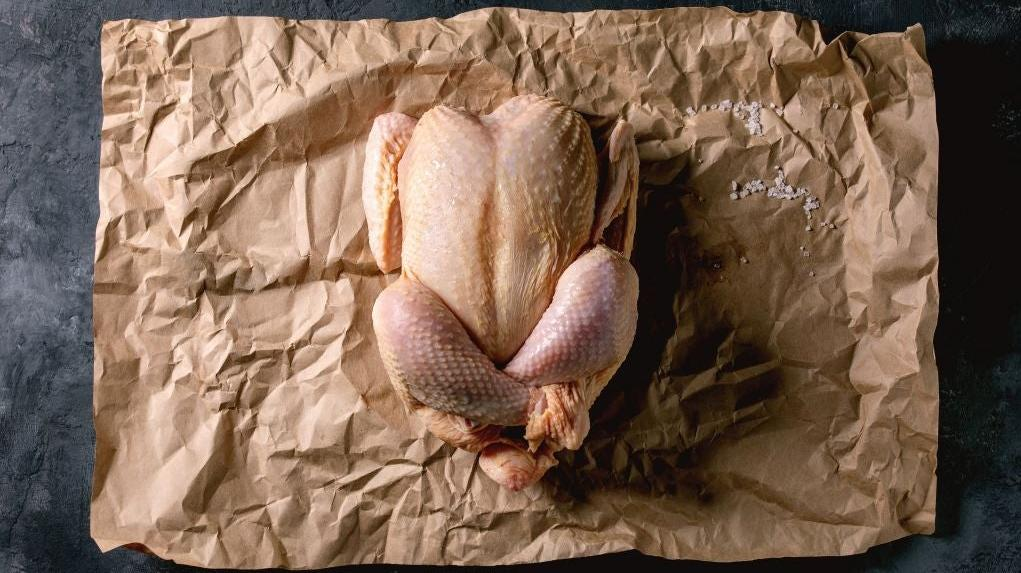Raw Chicken Scandal On College Campus Leads To Sassy Promotion At Nearby Restaurant
A WVU student was served raw chicken breast—so a nearby restaurant poked fun at the school's dining services.
College dining halls are largely terrible, but serving raw chicken to students is really pushing it. Unfortunately, one student alleges she was served a chicken patty with a completely raw center last earlier this week. Now, a nearby restaurant is taking advantage of the snafu by advertising chicken "cooked until it's done." Savvy marketing, indeed.
First, some background. I read all about the chicken saga in West Virginia University's student newspaper, The Daily Athenaeum (otherwise known as The DA). The DA reported that, early last week, a freshman was noshing on a chicken sandwich at Cafe Evansdale, WVU's largest dining hall. At some point, the student noticed the center of the chicken patty was completely raw. She tried reporting the incident to WVU Dining Services and eventually turned to the student publication to air her grievances. The DA reports that "she was sick for a couple of days following the incident and was unable to eat or attend class."
After The DA first published news of the incident, one nearby restaurant debuted some clever and timely marketing. Per an updated DA story, Boston Beanery, a popular Morgantown, WV, hangout, updated its scrolling sign to read: "Students we cook our chicken until it's done!!" A low bar, to be sure—but certainly better than the alternative.
Per The DA, WVU Dining officials responded to the incident with a promise to do better. "WVU Dining officials said they will be checking the temperature of food every thirty minutes and will do further training for employees to prevent future raw chicken incidents," the student newspaper reports. Until that training is completed, WVU students have two options: eat breakfast, lunch, and dinner at Boston Beanery, or try my freshman year diet plan (eating giant helpings of cereal for every meal with the occasional orange thrown in to prevent scurvy).
